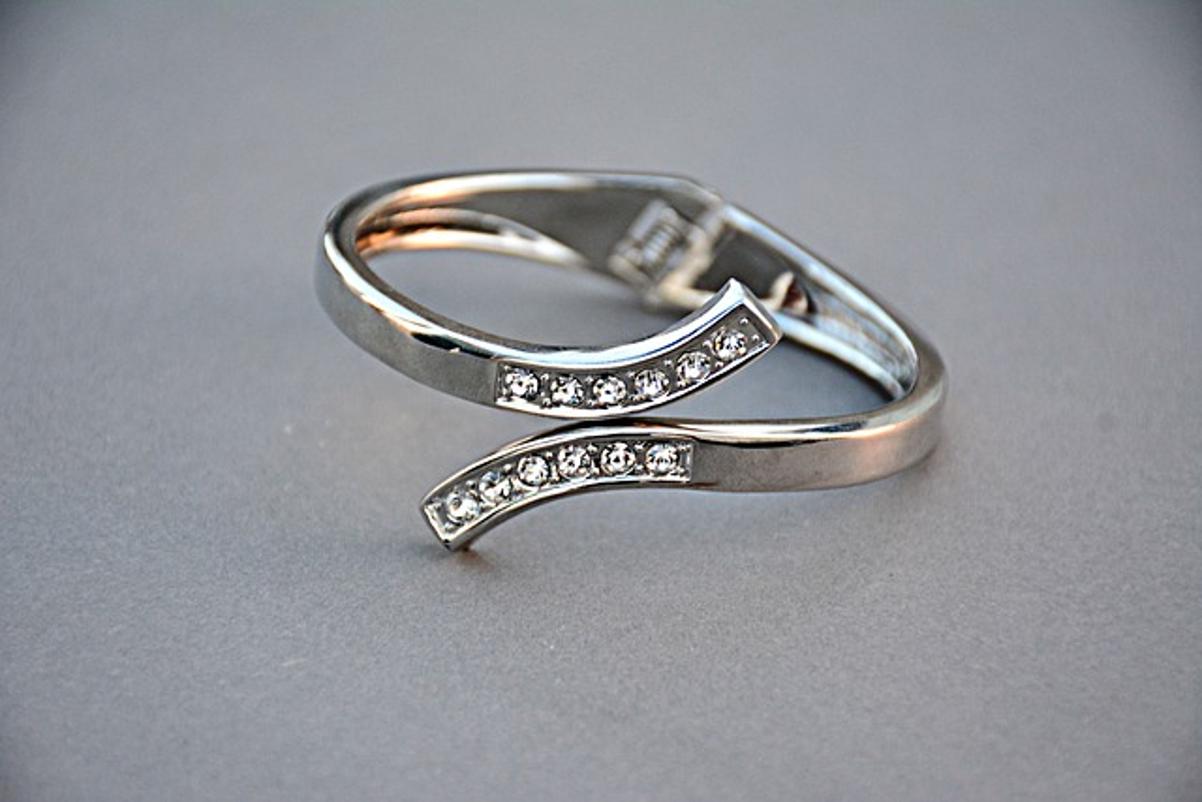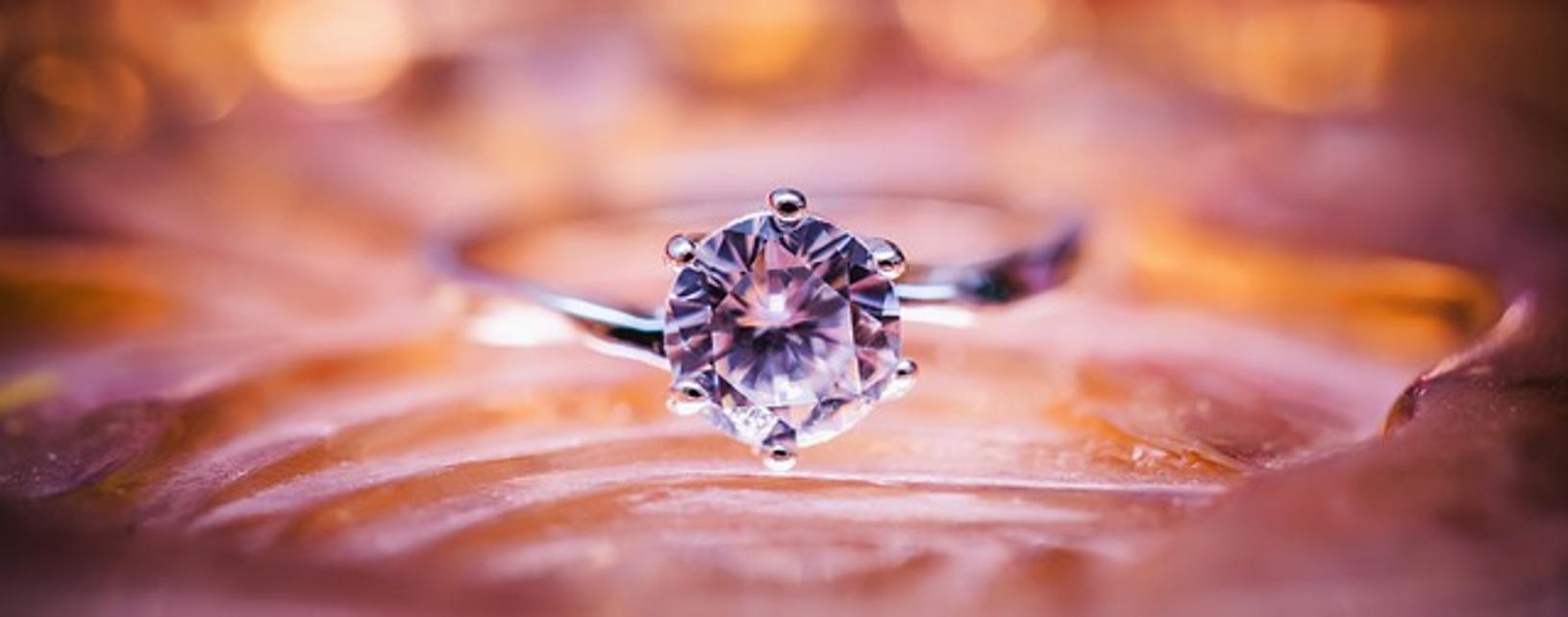Can I Wear My Engagement Ring in the Pool? The Ultimate Guide
Introduction
Getting engaged is a special milestone, and your engagement ring symbolizes that promise. As beautiful and sentimental as your ring is, it’s essential to know how to care for it, especially when you’re near water. One common question newly engaged individuals ask is, ‘Can I wear my engagement ring in the pool?’ The quick answer is: it’s not advisable. Below, we explore why wearing your ring in the pool can be risky and how you can protect your treasured piece.

The Effects of Chlorine on Engagement Rings
How Chlorine Interacts with Different Metals
Chlorine is a powerful chemical commonly used in pools to kill bacteria. While it ensures a clean swimming environment, chlorine can be harmful to various metals found in engagement rings. Gold, for instance, is particularly susceptible to chlorine corrosion. Submersing your gold engagement ring in chlorinated water can weaken its structure, making it more prone to breaking. Platinum, although more resistant, can still suffer discoloration and a weakened structure if exposed to chlorine frequently.
Impact on Gemstones
Chlorine doesn’t just affect the metal; it can also harm the gemstones set in your engagement ring. Diamonds are generally safe since they are the hardest known mineral, but the settings holding them can weaken. On the other hand, softer gemstones like emeralds and opals can easily get damaged. Their porous nature allows chlorine to seep in, causing discoloration and structural damage over time.
Physical Risks of Wearing Your Engagement Ring in the Pool
Risk of Slippage and Loss
Water can make your fingers shrink and become slippery, which increases the risk of your ring slipping off and getting lost. Pools are large areas, and losing a ring in a pool can mean it’s gone forever. The force of the water from swimming can also contribute to the slippage, increasing the chances of losing your precious ring.
Potential for Physical Damage
Apart from the chemical risks, there are physical risks involved as well. Bumping your hand against the pool edge, diving boards, or even other swimmers can cause scratches, dents, and even loosen the gemstones in your engagement ring. Pools can sometimes have rough surfaces, which can scratch and dull the metal and gemstones, further degrading the ring over time.
Expert Opinions and Recommendations
Jewelers’ Advice on Wearing Engagement Rings in Water
Most jewelers strongly advise against wearing your engagement ring in the pool. They highlight the chemical reactions between chlorine and metals, which can lead to irreversible damage. Jewelers often explain that preventative care is easier and more cost-effective than repairing a damaged ring. Regular exposure to pool water can also compromise the structural integrity of the ring over time, making it easier to break or lose gemstones.
Real-Life Experiences Shared by Users
People who have ignored these warnings often share stories of regret. Common experiences include rings slipping off and being lost forever, gemstones becoming loose and falling out, and metal discoloration. Online forums and review sections of jewelers’ websites are filled with anecdotes of damaged engagement rings due to pool water exposure. Learning from others’ mishaps can save you emotional and financial stress.
Alternatives to Wearing Your Ring in the Pool
Safe Storage Options
One practical alternative is to store your ring in a secure, waterproof container before you swim. Many high-quality options are designed specifically for jewelry. You can also use a small, sturdy box with a secure lock to keep your ring safe while you enjoy the water. Waterproof lockers or safes available at most swimming facilities can also ensure your ring’s safety.
Temporary Replacement Options
Another solution is to wear a temporary ring while you’re at the pool. Silicone rings are an excellent option; they are low-cost, durable, and comfortable. These rings can be worn without worry and can serve as a placeholder while you swim. Choosing a temporary ring ensures that your original engagement ring remains safe from potential harm.
How to Protect Your Engagement Ring from Damage
Pre-Pool Preparation
Before hitting the pool, take a few moments to secure your engagement ring. Store it in a safe place where it won’t be exposed to chlorinated water. If you prefer to keep a ring on, consider wearing a silicone ring as mentioned earlier. Taking these preventative measures will ensure your engagement ring remains intact and beautiful.
Post-Swimming Care
If you accidentally wear your ring in the pool, rinse it with fresh water as soon as possible to remove chlorine residue. Dry it gently with a soft, lint-free cloth. Avoid using harsh chemicals or abrasive materials that could further damage the ring. Timely post-swim care can help mitigate some of the harmful effects of chlorine.

Caring for Your Ring Post-Pool Time
Cleaning Tips for Different Metals and Gemstones
Regular cleaning is crucial to maintain the ring’s sparkle and integrity. Use a mild, pH-balanced soap mixed with lukewarm water to gently clean your ring. For tough dirt, a soft-bristle toothbrush can help reach small nooks and crannies. For gemstones, ensure you know their specific care requirements. For instance, emeralds should not be soaked, while diamonds can withstand more rigorous cleaning.
Professional Inspection and Maintenance
Annual professional inspections can catch potential problems before they become significant issues. Jewelers can check for loose prongs, worn-out settings, and weakened metal structures. Many will provide complimentary cleaning services, allowing you to keep your ring in pristine condition year-round.

Conclusion
Your engagement ring is a symbol of an important commitment, and its care should be a priority. Wearing it in the pool exposes it to chemicals and physical dangers that can cause long-term damage. Instead, opt for safe storage or temporary alternatives to protect your cherished piece. With regular cleaning and professional inspections, your ring will continue to shine brightly for years to come.
Frequently Asked Questions
Can pool chemicals permanently damage my engagement ring?
Yes, chlorine and other chemicals can interact with metals and gemstones, causing discoloration, structural weakening, and permanent damage over time.
What should I do if I accidentally wore my ring in the pool?
Rinse it immediately with fresh water, dry it with a soft cloth, and check for any visible damage. If you’re concerned, consult a professional jeweler for a thorough inspection and cleaning.
Are there safer alternatives to wearing my engagement ring while swimming?
Absolutely, consider storing your ring in a secure container or locker, or wear a silicone ring as a temporary replacement to keep your original ring safe.
